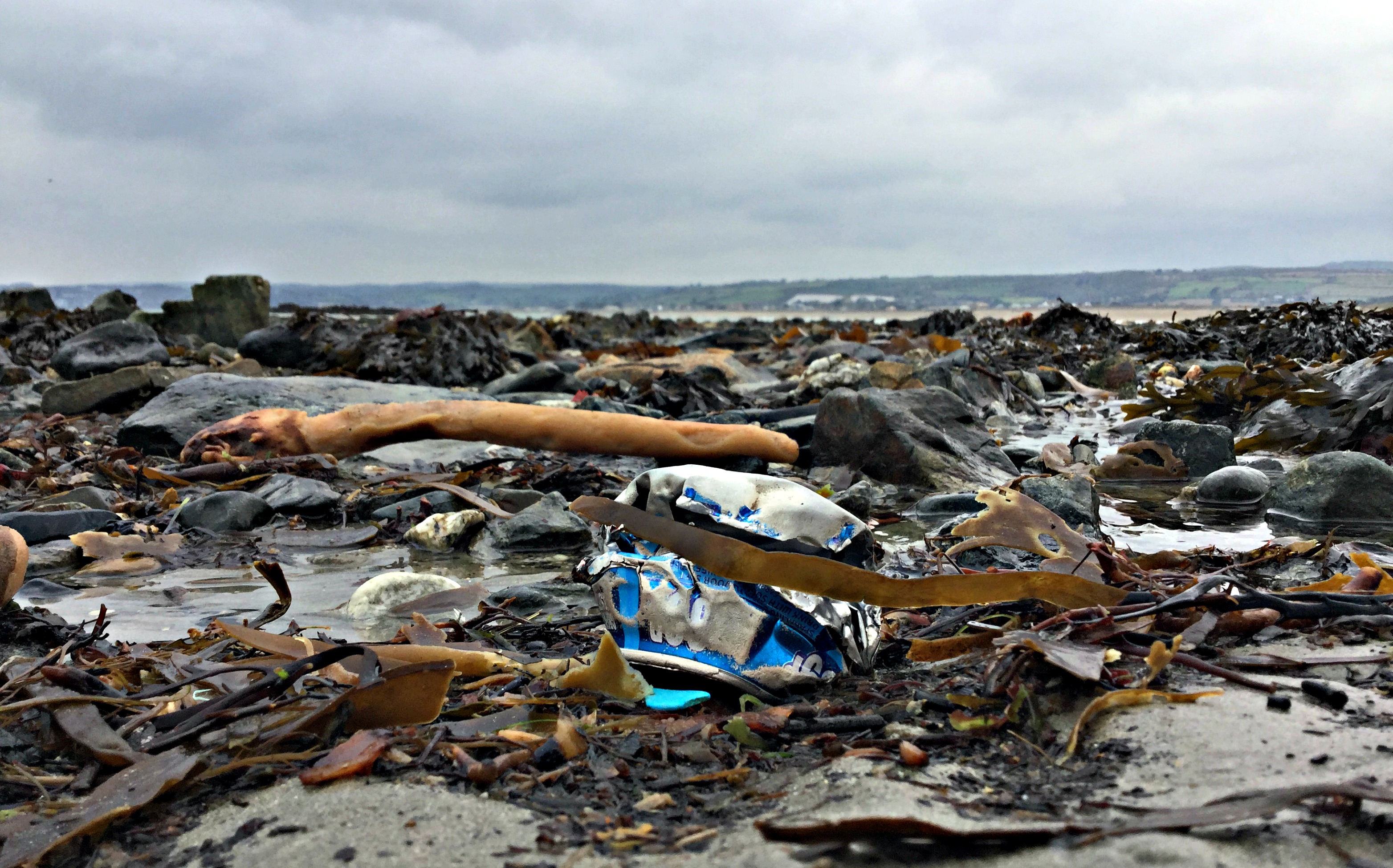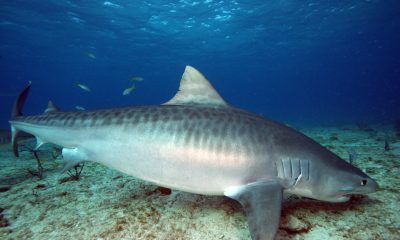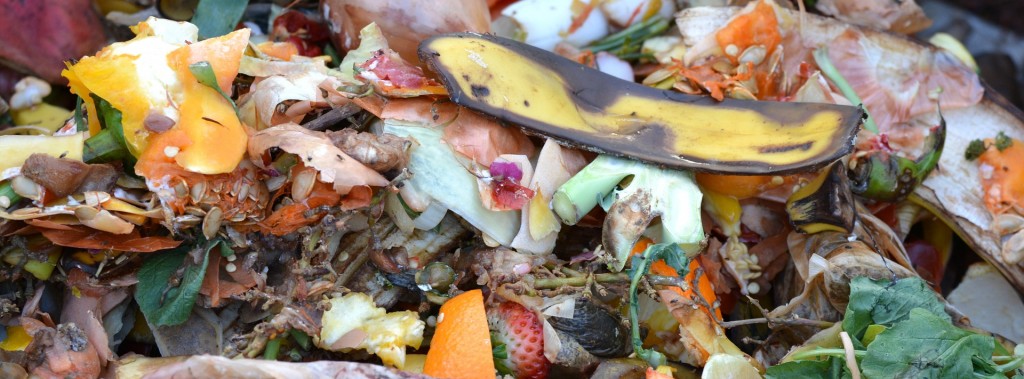Marine Life & Conservation
Around 8 million items of litter enter the marine environment every day

I’m sure the headline of this article has caught your attention.
But marine litter doesn’t really make a difference to your or me does it? It’s just makes places look unpleasant.
It actually does affect us, in lots of different ways: it can poison the water, kill organisms, and even poison us.
Scottish fishing vessels have surveyed:
- 86% restricted catch due to marine litter
- 82% had catch contaminated
- 95% snagged gear on debris in water
Populations of commercial fish stocks are declining because of the bioaccumulation of litter-related toxins. For example, sewage goes into the ocean every day and contains bacteria and viruses, and then you have the nutrients entering from agricultural wash off leading to algal blooms and dead zones. Fifty years ago there were only 49 known ocean dead zones… now there is over 400 worldwide.
Marine litter is a global issue, but all is not lost. Some dead zones can be temporary and repaired, but we need to change our ways as a species now. If we work together we can really make a difference.
Every year there are new legislations being passed to limit the amount of litter entering our waters. But there is still so much left to be done and we can make a difference.
There is so much you can do!
- Talk to your children: Explain to them in simple terms the effects of their litter and the importance that they clean up after themselves. I’ve linked a helpful site with ways to discuss the situation with young children.
- Clean up after yourselves: When you are out make sure you clean up your own litter (if possible you could clean up some other litter too – only footprints should be left).
- Litter picks: Why not start a day out by joining a local litter pick? It doesn’t even have to be at a beach! When you attend a litter pick make sure you have the correct precautions such as gloves and sturdy shoes, and please keep an eye on any children taking part, because you never know what they could find
- In 2014 Surfers against Sewage (SAS) organised 335 beach clean-ups and received over nine thousand volunteers in the UK. Their goal is to have reduced litter on UK beaches by 50% by 2020, a goal which is easily reachable if we all work together and volunteer. There is an estimated 41,146,380 pieces of marine litter on the British coast line. Sounds like an impossible goal, huh? Actually, in 2014 SAS collected almost 60 tonnes of litter. To learn more about SAS litter picks and how you can organise your own please click on this link: SAS beach clean campaign
- Internationally there is www.oceanconservancy.org who are working to organise international litter picks each year. This year it will be held on September 17th 2016. The site has some great information about how to reduce your litter effect for individuals and even businesses so why not check them out and sign their litter pick pledge.
- Use less plastic: Plastic bags can take anywhere from 150 years to over a thousand before they degrade. Plastic bage are not biodegrade though; instead they are broken down by light into tiny fragments of plastic, which are toxic, and are known as microplastics. According to Greenpeace there are an estimated 1,000,000 birds, 100,000 turtles, and countless other sea organisms dying each year from ingesting plastic bags alone. The bags are mistaken for jellyfish and other forms of edible sea creatures. Then you have microplastics which can be formed from the breakdown of larger plastics, but are also placed in products – like the ones in face scrubs and toothpastes, for example. Due to the tiny size it’s bypassed by water treatment and is washed down to the rivers, streams, and eventually the ocean. To see what different products contain microplastics look at this link.
- Compost: Remember earlier I mentioned algal blooms? Well they can be caused by chemicals in the food we throw away or wash down or drains.
If you have the room and the time (it’s really simple) you could set up a compost heap, which not only reduces the amount of organic matter going into our oceans, but also can be used instead of artificial fertilizers.
Some easy steps for setting up a home compost:
- A home compost bin should be at least 1 metre cubed, with a lid to prevent rain entering.
- Ideally site your compost bin in a reasonably sunny site on bare soil.
- Bottomless bins are better as the allow earthworms to enter and speed up the process.
- Lots of food waste can be used to make compost, except meat/fish products, dairy products, grease/oil or bones.
- The smaller your scraps are cut the quicker then can decompose.
- You can compost peelings, egg shells, hair, small amounts of paper/softcard, plants, and tea/coffee particles.
- Keep filling it!
- Composting can take weeks or months depending on how much air and moisture are present.
- The compost is ready to use when it is crumbly in appearance and has a slightly earthy smell.
- Spread away!
This isn’t an extensive list of how you can reduce the amount of litter going into the ocean: it’s only the tip of the iceberg, but it’s a start.
Article sources:
Marine Litter – An Analytical Overview – UNEP 2005
http://www.sas.org.uk/wp-content/uploads/SAS-Marine-Litter-Report-Med.pdf
Marine Life & Conservation
Leading UK-based shark conservation charity, the Shark Trust, is delighted to announce tour operator Diverse Travel as a Corporate Patron

 Corporate Patrons provide a valuable boost to the work of The Shark Trust. The Trust team works globally to safeguard the future of sharks, and their close cousins, the skates and rays, engaging with a global network of scientists, policymakers, conservation professionals, businesses and supporters to further shark conservation.
Corporate Patrons provide a valuable boost to the work of The Shark Trust. The Trust team works globally to safeguard the future of sharks, and their close cousins, the skates and rays, engaging with a global network of scientists, policymakers, conservation professionals, businesses and supporters to further shark conservation.
Specialist tour operator Diverse Travel has operated since 2014 and is committed to offering its guests high quality, sustainable scuba diving holidays worldwide. Working together with the Shark Trust will enable both organisations to widen engagement and encourage divers and snorkellers to actively get involved in shark conservation.
“Sharks are truly at the heart of every diver and at Diverse Travel, we absolutely share that passion. There is nothing like seeing a shark in the wild – it’s a moment that stays with you forever!” says Holly Bredin, Sales & Marketing Manager, Diverse Travel.
“We’re delighted to celebrate our 10th year of business by becoming a Corporate Patron of the Shark Trust. This is an exciting partnership for Diverse and our guests. We will be donating on behalf of every person who books a holiday with us to contribute towards their vital shark conservation initiatives around the world. We will also be working together with the Trust to inspire divers, snorkellers and other travellers to take an active role – at home and abroad – in citizen science projects and other activities.”
Paul Cox, CEO of The Shark Trust, said:
“It’s an exciting partnership and we’re thrilled to be working with Diverse Travel to enable more divers and travellers to get involved with sharks and shark conservation. Sharks face considerable conservation challenges but, through collaboration and collective action, we can secure a brighter future for sharks and their ocean home. This new partnership takes us one more valuable step towards that goal.”
For more information about the Shark Trust visit their website here.
For more about Diverse Travel click here.
Marine Life & Conservation
Shark Trust Asks Divers to help with Shark Sightings this Global Citizen Science Month

 Whether you are stuck for ideas of what to do with the kids or are off on the dive trip of your dreams. You can get involved in Citizen Science Month and help the Shark Trust by providing vital data about sharks are rays both close to home and further afield.
Whether you are stuck for ideas of what to do with the kids or are off on the dive trip of your dreams. You can get involved in Citizen Science Month and help the Shark Trust by providing vital data about sharks are rays both close to home and further afield.
In addition to reporting the sharks and rays you see on your dives, the eggcases you find on the beach, the Shark Trust is looking for some specific data from divers who are asked to report any Oceanic Whitetip and Basking Sharks.
Oceanic Whitetip Sharks
The Shark Trust are looking specifically for Oceanic Whitetip Shark sightings over the coming weeks and months. So, if you are diving anywhere in the world, please report your sightings via the website or app.
Website: https://recording.sharktrust.org/
App: Search The Shark Trust in your app store
The Oceanic Whitetip. Known for their incredibly long dorsal and pectoral fins, this species was once the most abundant oceanic-pelagic species of shark on the planet.
Large and stocky, they are grey or brown above, and white below and famous for their huge rounded first dorsal fin and paddle-like pectoral fins. The fins also highly prized within the shark fin trade. Whilst they are mostly solitary, Oceanic Whitetips do occasionally hunt in groups.
An inquisitive species, they were easy prey for fisheries. Combined with their low reproductive rate, they were inevitably at high risk of population depletion. And declines of up to 99% have been reported in certain sea areas. They are listed as Critically Endangered on the IUCN Redlist (2019).
Conservation efforts to discourage further declines include listing on CITES Appendix II and CMS Appendix I. They’re also the only species prohibited from take by all the Tuna RFMOs (Regional Fisheries Management Organisations). However, these measures do not mean that Oceanic Whitetips are not still caught – whether targeted or as bycatch – in some parts of the world. With populations declining at such a high rate, effective implementation of management measures is essential to ensure that the species can recover.
If you are lucky enough to get an image of an Oceanic Whitetip and you record your sighting on the Shark Trust app or website YOU CAN WIN! All images submitted with sightings, that also give consent to use in conservation messaging, will be in with a chance to win an Oceanic Whitetip T-shirt and mug. The competition will run until the end of “Shark Month” in July – so keep those sightings (and images) coming in.
Basking Sharks
Basking Shark (Cetorhinus maximus) season is upon us, and the Shark Trust is asking everyone to keep an eye out for these majestic giants over the summer months. If you see any, you can record your sighting to the Basking Shark Sightings database.
Each year, these mighty fish return to British waters to feed on plankton. You may see one, (or a few if you’re really lucky) from around April-October. They can be seen feeding at the surface of the water, where they look like they’re basking in the sun. Thus, their name!
Sighting hotspots around the British Isles include southwest England, Isle of Man, north coast of Ireland, and western Scotland. The Sea of the Hebrides is the most prolific sightings area in Scotland, but they have been spotted all around the coast and have even ventured into some of the sea lochs. The Shark Trust has received thousands of sightings since the Basking Shark project began, but more data is needed to truly understand what is going on with population numbers and distribution. You can help by recording your sightings this summer.
Great Eggcase Hunt
The Shark Trust has an Easter Egg Hunt with a difference for you to try. Take part in the Great Eggcase Hunt and get involved with a big citizen science project that helps shark, ray and skate conservation. And it’s an enjoyable activity for all the family.
The Shark Trust also want snorkellers and divers to record their underwater eggcase findings. Underwater records help pinpoint exactly where sharks and skates are laying their eggs and can help link to beach records. Learning the depth and substrate that they lay on also helps better understand the species.
Find out more: https://www.sharktrust.org/great-eggcase-hunt
Whether you are diving, snorkelling or exploring on the beach you can take part in Citizen Science Month and get actively involved in shark and ray conservation. Find out more: www.sharktrust.org
-

 News3 months ago
News3 months agoHone your underwater photography skills with Alphamarine Photography at Red Sea Diving Safari in March
-

 News2 months ago
News2 months agoCapturing Critters in Lembeh Underwater Photography Workshop 2024: Event Roundup
-

 Marine Life & Conservation Blogs2 months ago
Marine Life & Conservation Blogs2 months agoCreature Feature: Swell Sharks
-

 Blogs1 month ago
Blogs1 month agoMurex Resorts: Passport to Paradise!
-

 Gear News3 months ago
Gear News3 months agoBare X-Mission Drysuit: Ideal for Both Technical and Recreational Divers
-

 Blogs2 months ago
Blogs2 months agoDiver Discovering Whale Skeletons Beneath Ice Judged World’s Best Underwater Photograph
-

 Gear Reviews2 months ago
Gear Reviews2 months agoGear Review: Oceanic+ Dive Housing for iPhone
-

 Blogs3 months ago
Blogs3 months agoThe Thrilling Encounter with Tiger Sharks at Beqa Lagoon’s ‘The Colosseum’ with Coral Coast Divers










